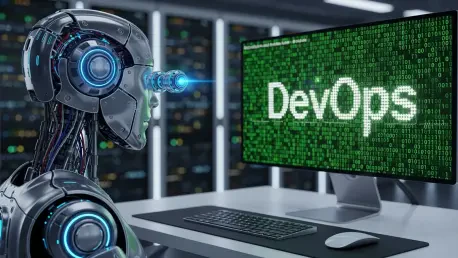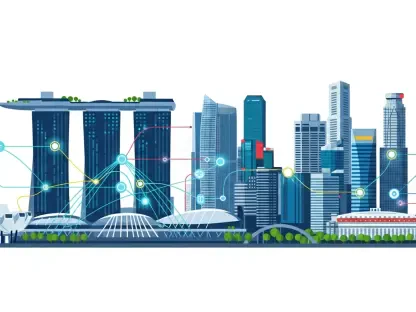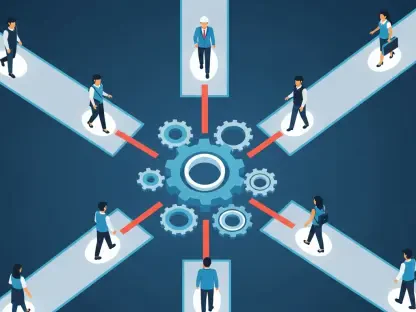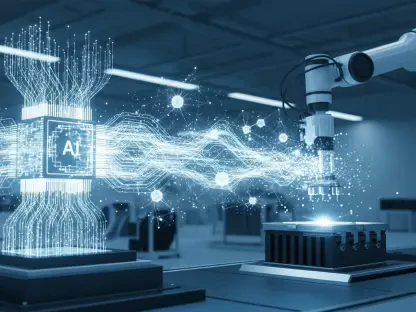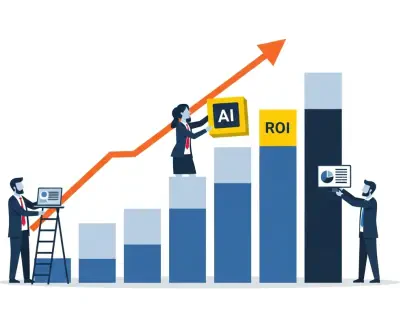Introduction to AI-Driven DevOps and the Role of Context
In the fast-paced realm of software development and IT operations, the integration of artificial intelligence has become a game-changer, with over 60% of enterprises adopting AIOps solutions to streamline workflows and boost efficiency. This surge reflects a pressing need for automation and intelligent monitoring as organizations grapple with increasingly complex systems and the demand for rapid delivery cycles. AI-driven DevOps, often termed AIOps, promises to revolutionize traditional practices by predicting failures, optimizing performance, and reducing downtime through machine learning algorithms and data analytics.
The landscape of DevOps today is shaped by key players such as IBM, Splunk, and Dynatrace, who are pushing the boundaries of technological advancements in automation tools and observability platforms. These innovations enable real-time insights into system health, facilitating quicker decision-making across distributed teams. However, the true potential of AI in this space lies in its ability to adapt to dynamic environments, a capability that hinges on understanding the nuanced context of operations—a critical factor that remains underexplored in many current implementations.
As the industry evolves, the growing complexity of hybrid cloud architectures and microservices demands more than just automated responses; it requires systems that can interpret situational data and act intelligently. This gap in contextual awareness has spurred interest in new methodologies to enhance AI’s role in DevOps, setting the stage for a deeper exploration of how intelligence can be embedded into every layer of operational workflows.
Understanding Context Engineering in DevOps
Defining Context Engineering and Its Distinction from Prompt Engineering
Context engineering emerges as a sophisticated approach that transcends the limitations of prompt engineering, which primarily focuses on crafting specific instructions for AI models to execute tasks. Unlike its predecessor, context engineering builds a comprehensive information ecosystem by aggregating dynamic data from diverse sources, integrating inputs from multiple platforms, and incorporating temporal awareness to understand historical patterns. This method aims to equip AI systems with a holistic grasp of the operational environment within DevOps, enabling more informed and relevant actions.
In complex DevOps settings, where systems interact across numerous tools like CI/CD pipelines and monitoring dashboards, context engineering addresses critical shortcomings of existing AIOps solutions, such as lack of situational awareness and the generation of false positives. By creating a richer data framework, it allows AI to discern the underlying causes of issues, correlate events across systems, and prioritize alerts based on their actual impact. This shift from reactive to proactive intelligence marks a significant leap in how automation can support intricate IT landscapes.
The nuanced understanding provided by context engineering also mitigates operational noise, ensuring that DevOps teams focus on actionable insights rather than sifting through irrelevant notifications. As a result, this approach fosters a more seamless interaction between human operators and AI tools, paving the way for smarter decision-making in environments where every second counts.
Market Trends and Growth Potential of Context-Aware AI
The rise of context-aware AI in DevOps is fueled by emerging trends such as the adoption of agentic AI platforms like Microsoft AutoGen, LangChain, and CrewAI, which enable autonomous and adaptive system behaviors. These platforms are increasingly integrated into DevOps workflows to act as co-pilots, reasoning through problems and executing tasks with minimal human intervention. This shift toward self-managing systems reflects a broader industry push for efficiency and resilience in software delivery processes.
Growth projections for context-aware AI indicate a robust trajectory, with market analysts forecasting a significant uptick in adoption rates from the current year through 2027, driven by the need for smarter automation solutions. Performance indicators suggest that organizations implementing these technologies could see up to a 40% reduction in incident resolution times, alongside substantial cost savings in infrastructure management. Such metrics underscore the tangible benefits of embedding contextual intelligence into operational frameworks.
Furthermore, the demand for adaptive AI systems is reshaping vendor strategies, with many focusing on developing tools that prioritize multi-source data integration and real-time processing. As enterprises recognize the competitive edge offered by context-aware automation, investments in these technologies are expected to accelerate, positioning this domain as a cornerstone of future DevOps innovations.
Challenges in Implementing Context Engineering
The adoption of context engineering in DevOps is not without hurdles, particularly due to the technical complexities involved in integrating disparate data sources across varied platforms. Ensuring that AI systems can process this information in real time poses additional challenges, as delays can undermine the effectiveness of automated responses. Moreover, managing intricate system dependencies requires a level of precision that current tools often struggle to achieve, leading to potential bottlenecks in deployment.
To overcome these obstacles, standardized APIs and advanced data orchestration tools are being developed to streamline integration and enhance interoperability among systems. Investments in AI training programs are also crucial, as they help models better understand contextual nuances and reduce errors in decision-making. These solutions aim to create a more cohesive environment where data flows seamlessly, supporting the scalability of context-aware implementations.
Beyond technical barriers, organizational readiness plays a significant role in successful adoption, as teams must adapt to new workflows and trust AI-driven insights. Addressing these human factors through change management initiatives and continuous education can bridge the gap between technology and practical application, ensuring that context engineering delivers on its promise of enhanced operational efficiency.
Regulatory and Compliance Considerations in AI-Driven DevOps
Navigating the regulatory landscape is a critical aspect of implementing AI and context engineering in DevOps, especially with stringent data privacy laws and security standards governing automated systems. Frameworks such as GDPR and CCPA impose strict requirements on how data is handled, necessitating robust mechanisms to protect sensitive information within contextual datasets. Compliance with these regulations is non-negotiable for organizations operating across global markets.
Security considerations also loom large, as the integration of multi-source data increases the risk of vulnerabilities if not managed properly. Adhering to industry best practices, such as regular audits and encryption protocols, becomes essential to safeguard operations while leveraging AI capabilities. This alignment ensures that context-aware systems do not inadvertently expose enterprises to legal or reputational risks.
Furthermore, ethical considerations in AI deployment must be prioritized to maintain trust among stakeholders, particularly when autonomous systems make decisions impacting business outcomes. Establishing clear guidelines for accountability and transparency in context engineering applications helps organizations balance innovation with responsibility, fostering a sustainable approach to technology adoption in regulated environments.
The Future of Context Engineering in DevOps Evolution
Looking ahead, context engineering holds immense potential to redefine DevOps through fully autonomous operations, predictive analytics, and intelligent decision-making capabilities. By embedding situational awareness into AI systems, it enables proactive management of resources, anticipating issues before they escalate into critical failures. This forward-thinking approach could drastically reduce downtime and enhance the reliability of software delivery pipelines.
Emerging disruptors, such as advanced agentic AI frameworks, are set to further amplify these capabilities, offering tools that not only automate tasks but also learn and adapt to evolving conditions. Coupled with consumer demands for faster delivery cycles, these technologies are driving a paradigm shift toward more agile and responsive DevOps practices. The influence of global economic factors also plays a role, as organizations prioritize investments in solutions that promise long-term cost efficiencies.
As the field matures, the integration of context engineering with other cutting-edge innovations, such as edge computing and advanced analytics, could unlock new possibilities for distributed systems management. This convergence signals a future where DevOps is not just a set of practices but a dynamic, intelligent ecosystem capable of self-optimization and continuous improvement.
Conclusion and Strategic Outlook for Context Engineering
Reflecting on the insights gathered, context engineering stands out as a transformative force that tackles the inherent limitations of traditional AIOps, paving the way for smarter, context-aware workflows in DevOps environments. Its ability to weave together dynamic data and temporal insights has reshaped how automation supports complex IT operations, offering a glimpse into a more efficient future landscape.
For organizations aiming to stay ahead, strategic investments in context engineering and agentic AI platforms emerge as vital steps to harness this potential. Prioritizing the development of robust data integration frameworks and fostering a culture of continuous learning among teams are recommended actions that can amplify the benefits of these technologies.
Additionally, forging partnerships with technology vendors to co-create tailored solutions offers a pathway to address unique operational challenges. By embedding context-aware intelligence into their core strategies, enterprises position themselves to not only enhance efficiency but also gain a distinct competitive edge in an ever-evolving industry.
